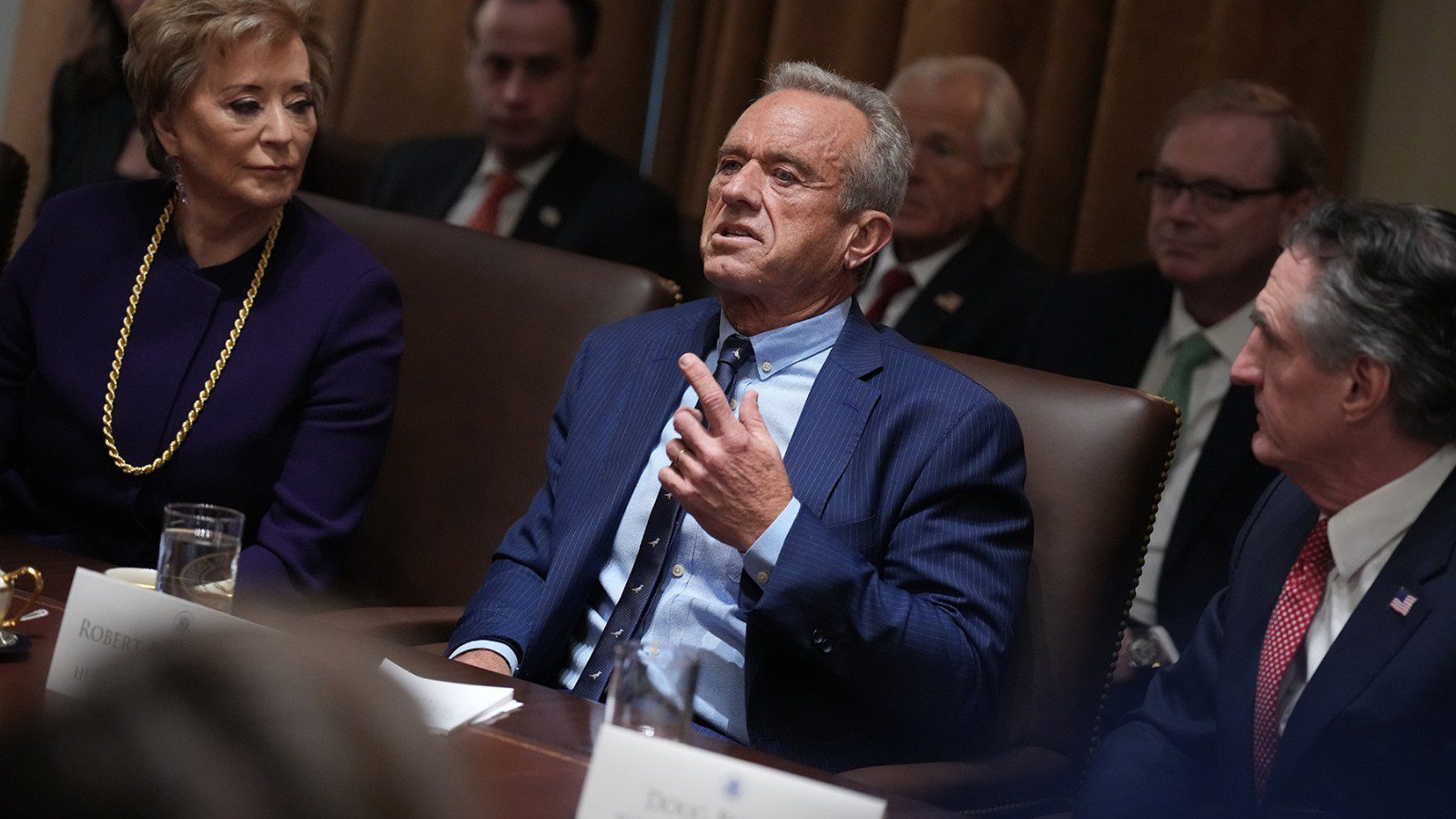
In his initial Cabinet meeting during his second tenure, Health Secretary Robert F. Kennedy Jr. minimized the gravity of a measles outbreak in southern Texas, which has unfortunately resulted in the first U.S. death due to the virus since 2015.
During the meeting on Tuesday, Kennedy was prompted to address the tragic death of a child who had contracted the virus. To date, the outbreak has affected at least 124 individuals, with the Texas Department of Health reporting that 18 people have been hospitalized.
“We are monitoring the situation, and about 20 individuals are currently hospitalized, primarily for quarantine purposes,” stated Kennedy. “We issued a statement on this yesterday and will keep track of developments.”
Kennedy remarked that “there have been four measles outbreaks this year in the U.S. alone — last year saw over 16. Thus, it’s not uncommon to experience measles outbreaks annually.”
A long-time skeptic of vaccines, Kennedy has often downplayed the dangers of measles, often misrepresenting its incidence within the United States.
Almost 40 years after the measles vaccine was introduced, the disease was declared eradicated in the U.S. in 2000, meaning no new cases were transmitted domestically, with all cases being acquired from abroad. According to the CDC, following nearly two decades of minimal measles occurrences due to an effective vaccination initiative, “in 2019, the U.S. faced almost 1,300 measles cases stemming from a major outbreak in New York and additional cases across 30 states, putting its eradication status at risk.”
“The global incidence of measles dropped during the COVID-19 pandemic, but both global and U.S. measles activity is on the rise,” the CDC added.
The increase in measles outbreaks is largely due to growing vaccine hesitancy, particularly among parents of young children. The CDC indicates that “vaccination rates among U.S. kindergartners decreased from 95.2% in the 2019–2020 school year to 92.7% in 2023–2024, putting approximately 280,000 kindergartners at risk this school year.”
While 16 measles outbreaks were recorded last year, defined by the CDC as three or more related cases, only four have been noted so far in 2023. The ongoing outbreak in Texas is on track to constitute nearly half of all reported U.S. measles infections in just the first two months of the year.
It is indeed “unusual” for so many people to contract measles in the United States, and having fatalities from an outbreak is even rarer. Nevertheless, this isn’t the first occurrence where Kennedy has diminished the seriousness of this dangerous virus, especially to promote his anti-vaccine agenda.
In a 2021 forward to a publication from his anti-vaccine organization, Children’s Health Defense, Kennedy claimed that “American readers and consumers globally will discover that they have been misled by the pharmaceutical industry and their government agency allies into thinking that measles is a deadly disease and that measles vaccines are essential, safe, and effective.”
“Investigative journalists should have exposed these truths long ago: Measles outbreaks have been exaggerated to instill fear, prompting officials to take unnecessary actions, including administering risky vaccines to millions of children,” he further stated.
In 2019, Children’s Health Defense, under Kennedy’s leadership, fueled anti-measles vaccine sentiments in Samoa during an outbreak that ultimately led to 83 deaths. Concerns surrounding vaccine safety heightened after two children died due to improperly administered vaccinations.
As public hesitance towards vaccines grew in Samoa, Kennedy visited Samoa, where he met with the prime minister, engaged with local anti-vaccine advocates, and penned a letter suggesting the outbreak might have resulted from defective vaccines.
With one child already lost to measles in the United States and a Health Secretary who appears to regard the dangers of the virus as a conspiracy, the situation may deteriorate significantly before improvement is seen.









